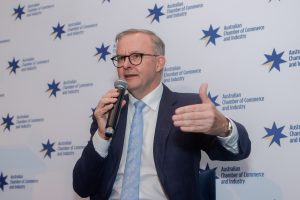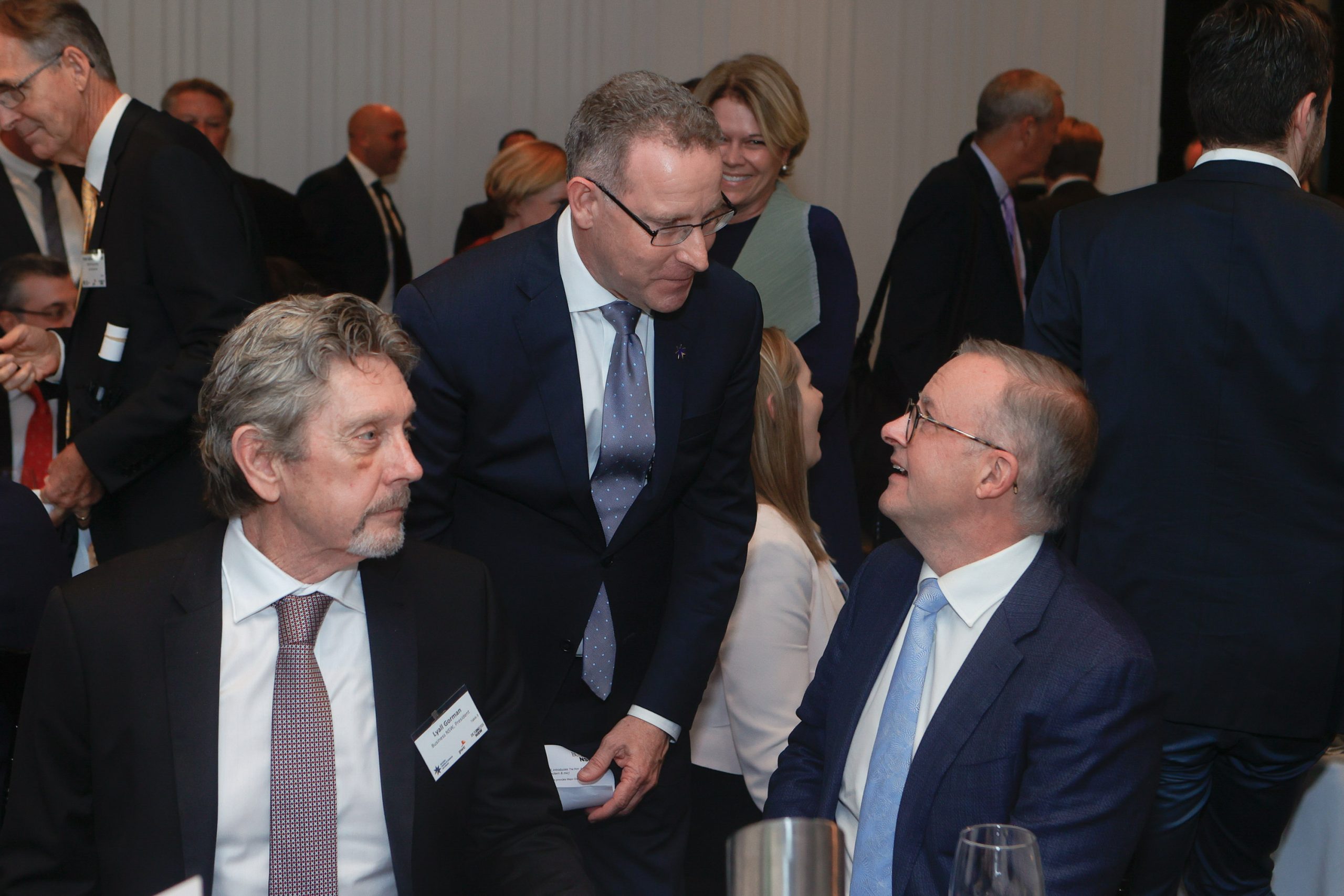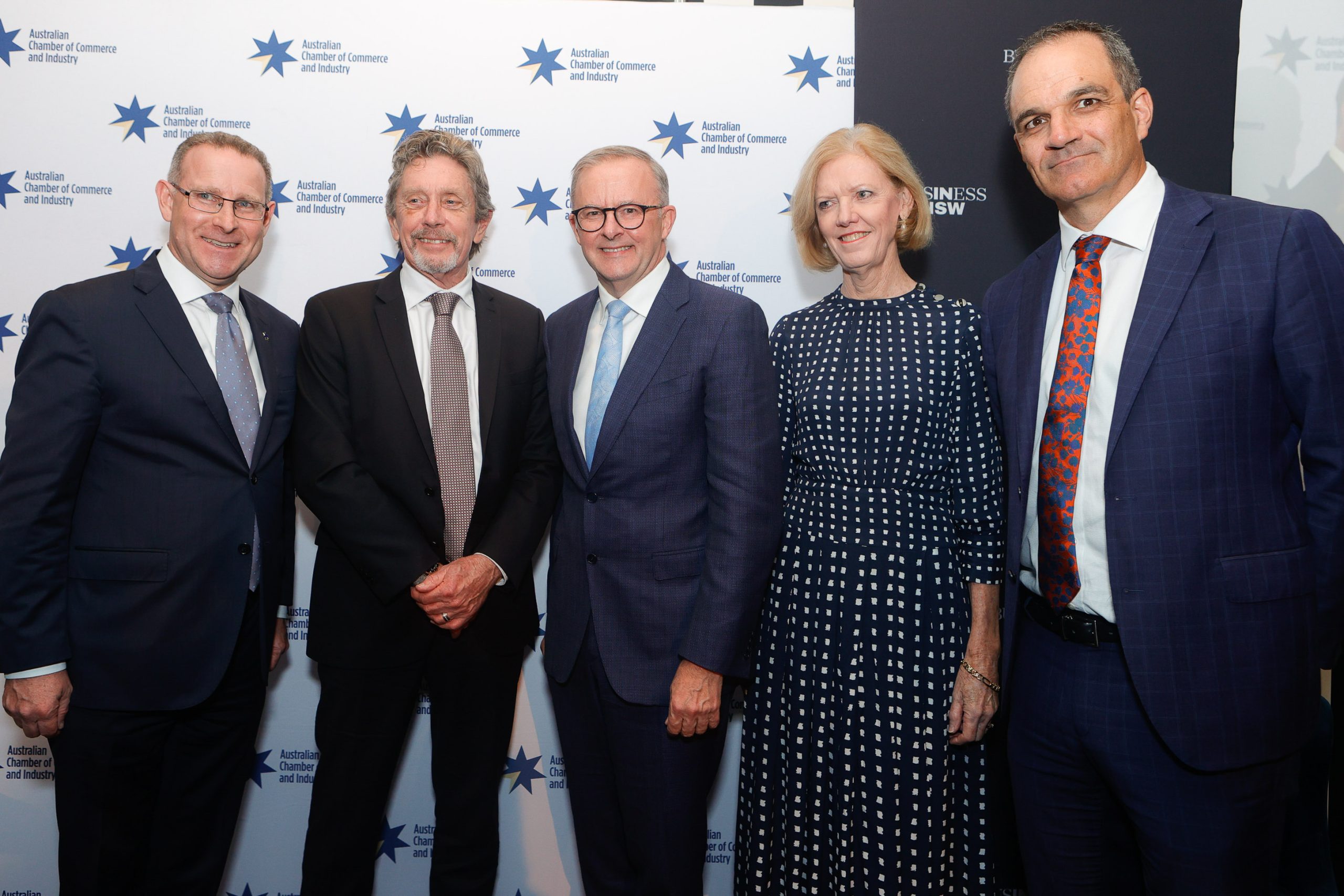Jobs and Skills Summit – Day Two
Day 2 of the Jobs and Skills Summit has delivered major wins for businesses struggling to find staff.
The permanent migration cap will be lifted and a new effort will be launched to clear the visa backlog.
Prime Minister Anthony Albanese also announced that pensioners will be able to work more without penalty.
Australia’s permanent migration intake will increase by 35,000 to 195,000 a year and the Government will direct $36.1 million towards additional visa processing.
A major review into Australia’s immigration system was also announced.
The Government’s Summit outcomes document can be seen here.
Australian Chamber of Commerce and Industry chief executive Andrew McKellar spoke during the session that canvassed the role of skilled migration in resolving the current skills and labour shortage.
Mr McKellar told the Summit that announcements to in increase permanent migration and provide additional resources to visa processing were a “significant step forward” and re-stated ACCI’s call for all occupations to be eligible.
“It’s important that employer-sponsored temporary and permanent migration needs to return to the sorts of settings that we had prior to 2017, which allowed sponsorship of all skilled occupations,” Mr McKellar said.
“Employer sponsored migration in Australia is the most successful form of migration for Australia, as well as for the migrant.”
In ACCI’s media release, Mr McKellar said the chamber movement had been campaigning for an increase to the migration cap since August last year.
During the Summit, Mr McKellar also discussed the temporary skilled migration income threshold, emphasising that three in four temporary skilled migrants are professionals or managers with a salary over $100,000.
“It’s misleading (to suggest) that the programmes are dominated by exploitation of guest workers,” Mr McKellar said.
Moves to increase the minimum salary of temporary skilled migrants well beyond the current $53,900 would potentially shut out certain occupations, including, for example, aged care workers, cooks, café and accommodation managers, mechanics and hairdressers, Mr McKellar said. It would also adversely impact on regional areas.
Immigration Minister Andrew Giles told the Summit that the visa backlog had been reduced from 1 million to 900,000 since the election.
“The median number of days it takes for a person coming into Australia on a temporary skilled visa is down: 53 days in May to 42 in July,” Mr Giles said.
The $36.1 million announced in visa processing surge capacity will fund 500 staff over nine months.
In addition to the immediate immigration fixes, Minister for Home Affairs Clare O’Neil announced a major review into Australia’s immigration system.
“What does our migration system look like for potential migrants? The current program is fiendishly complex. There are more than 70 unique visa programs, each with their own criteria and subcategories. There are hundreds of labour agreements and multiple skilled occupation lists, and an outdated visa processing system that is anything but fit for purpose,” Ms O’Neil said.
“People who want to live here can end up spending years filling out forms, at considerable personal expense, and then only be allowed to stay for a short while.”
The review would “consider how we can rebuild our immigration program in Australia’s national interest,” Ms O’Neil said.
The Government announced that pensioners would be able to earn an additional $4000 this financial year on top of the existing $480 a fortnight limit.
In closing the Summit, Prime Minister Anthony Albanese said: “This will mean that older Australians who want to work can earn more income before their pension is reduced.”
Further details of Government’s announcement for pensioners can be seen here.
In ACCI’s media release welcoming the announcement, chief executive Andrew McKellar said: “By removing some of the barriers for pensioners who want to work, we can make a real difference in their lives, and also help businesses struggling to find staff.”
Earlier today, the Summit discussed the future labour market, of which a key focus was the Statement of Common Interests on Skills and Training. The joint statement was issued ahead of the Summit by ACCI along with Ai Group, the BCA and the ACTU.
Skills Minister Brendan O’Connor said that, following yesterday’s announcement of $1 billion to provide more than 180,000 fee-free TAFE places, work would now commence on a five-year National Skills Agreement to be in place from 2024.
“We need to focus on the structural, systemic and even cultural challenges to reform our (vocational education and training) sector and our higher education sector,” Mr O’Connor said.
“Investing in our future workforce is an important as is as important to us as ensuring we have effective skilled migration pathways.”


